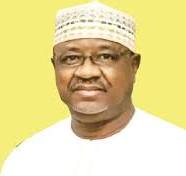A few days ago, a group of distinguished Nigerians, under the auspices of The Patriots led by an elder statesman, Chief Emeka Anyaoku, held a summit to discuss the constitutional framework of Nigeria’s future. At the end of the summit, they submitted a recommendation to return Nigeria to a “true federalism” based on regionalism. Now, Nigeria’s political journey since independence can be best understood through the lens of structure, de-structure, and restructure - a phenomenon that encapsulates the tragic evolution of our governmental system.
At independence in 1960, Nigeria embraced a federal system of government built on the same regionalism being recommended by summit. This structure recognized the country’s complex diversity, with the Northern, Western, Eastern and later Mid-western Regions enjoying autonomy over their internal affairs while remaining united under a central government. It was not perfect, but it provided a working framework that aligned governance with the sociocultural realities of the Nigerian state.
However, this structure was violently de-structured in 1966, following a military coup that toppled the First Republic. The coup plotters justified their actions by accusing the federal system of encouraging tribalism, sectionalism, segregation, corruption and inefficiency. Subsequently, the regions were dismantled, and Nigeria was reconfigured into states under a unitary command structure dominated by the military. The federal character of governance became superficial, as the central government grew stronger while the constituent units grew weaker.
For over five decades, this centralized system has dominated Nigeria’s political life, producing a highly dependent, rent-seeking subnational structure. Ironically, many of the same voices that justified dismantling federalism now call for restructuring - a return to the foundational principles of regional federalism. This raises a fundamental question: Were the vices of tribalism, sectionalism, segregation and corruption really cured? If so, how? Or was that federalism violently removed under the guise of moral rectitude, when in fact the real reasons were a hunger for power, domination and the hijacking of national resources?
Looking back, the answer appears clear. The alleged vices have not been genuinely addressed. Instead, they were institutionalized under a new system that only masked the dysfunction. Today, tribalism, sectionalism, segregation and corruption are even more entrenched than they were ever before. This points to a deeper truth - the problem never lay in the structure of federalism, but in the character of those who operated it.
This brings us to the core of Nigeria’s national dilemma: Is the problem in the letter of the law, or is it in the operators of the law? Clearly, it is the latter. A perfect system in the hands of dishonest, disorganized, parochial and self-centred operators will always malfunction. Until we cleanse ourselves of these personal vices - until integrity, discipline and responsibility define our political culture - no system of government, federal or unitary, will succeed.
Therefore, Nigeria’s challenge is not the name of its governmental system, but the morality and patriotism of its leaders and citizens. Restructuring is meaningful only if it is matched with self-restructuring of character. Otherwise, we risk repeating history - changing systems without changing ourselves. And in that lies the real tragedy.
